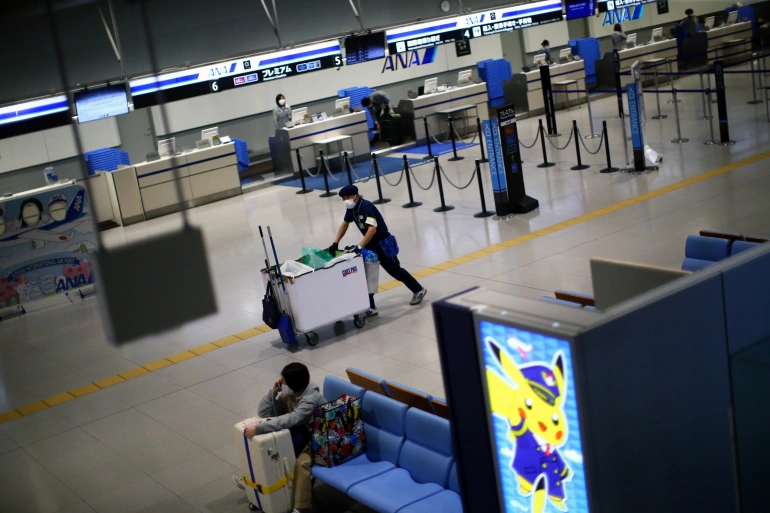Tokyo in November banned new entry by non-Japanese, including students and family members, in responses to Omicron.
Japan will maintain its tight entry restrictions it put in place to prevent the spread of the Omicron variant of the coronavirus until the end of February, its prime minister said on Tuesday, though some exceptions for humanitarian issues may be considered.
The country adopted some of the strictest border controls in the world when the Omicron variant emerged late last year, banning all new entry by non-Japanese, including students and foreign family members of Japanese or permanent residents, unless in exceptional circumstances.
The rules, which, in some cases, have kept families apart, have sparked protests and a petition calling for change, and media reports on Tuesday said the government was considering easing some of the rules in exceptional cases.
“Thanks to the toughest border rules in the G7 nations, we’ve been able to keep the spread of Omicron to a minimal level, giving us time to prepare to deal with domestic infection,” Kishida told reporters.
“We’ll maintain the current framework of measures until the end of February for the time being, while taking necessary measures from the perspective of humanitarian and national interests.”
Kishida added that while much remains unknown about Omicron, it appears that the risk of serious cases is lower. Still, he said the country would start vaccinating children under age 12 for the coronavirus.
Entry to Japan is currently limited to citizens and permanent residents, but even they face strict testing and quarantine rules.
Stricter measures
A surge of new COVID-19 cases in many parts of the nation to levels not seen since September prompted the government to reintroduce emergency restrictions over the weekend in three parts of the country that host United States military bases.
The US over the weekend agreed to impose stricter COVID-19 measures at US military bases in Japan, amid concerns that outbreaks at bases have fuelled infection in local communities. The US military has moved staff in and out under a separate testing and quarantine regime.

Source: Reuters/ ALJAZEERA

